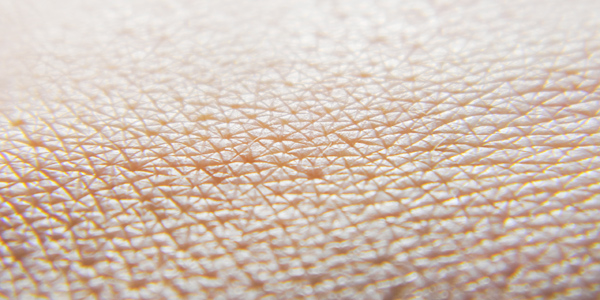How we are reducing animal-testing
Published on 8 Dec 2018 | By Cheryl Teh | Source: Straits Times © Singapore Press Holdings Limited. Permission required for reproduction.
Skin cells grown on credit-card sized device can help reduce commercial animal-testing.

Dr Massimo Alberti- one of the project's researchers- working on the device- which is made of plastic and can be easily reproduced on a large scale for commercial use. PHOTO: A*STAR
Researchers here have successfully reconstructed human skin on a compact device which may reduce or eventually replace animal testing.
The credit-card sized device allows for topical skincare and medicinal products to be tested for possible allergic reactions.
It may help to replace the millions of animals- such as mice and rabbits- that the People for the Ethical Treatment of Animals (Peta) says are widely used in the pharmaceutical- toxicology and cosmetic industries.
The research team comprises 10 scientists from A*STAR’s Singapore Institute of Manufacturing Technology (SIMTech) and Institute of Medical Biology.
The team is now working to make the testing device affordable for mass production- and easy to use for laboratory personnel.
Dr Wang Zhiping- principal scientist at SIMTech and lead researcher- said skin cells grown on the device are close to the real thing.
The human skin cultures are grown in a microfluidic device. This system- Dr Wang says- allows the device to process small quantities of fluid on a micro-scale- which imitates the way real skin cells behave when they come into contact with products. It also simulates blood flow in the body.
According to the team- the skin cultures have an epidermis (the outermost layer of the skin) that is twice as thick as those of other skin cultures.
Dr Wang said this makes for more robust testing compared with current techniques.
The device allows the testing of topical creams or skincare products for absorption- safety and permeability.
Dr Wang Zhiping- Principal Scientist at A*STAR SIMTech.
Since the device is made of hard plastic- it is amenable to cost-efficient mass production- enabling this screening solution to be easily scaled up to industrially relevant capacities.
Dr Wang said.
The project won a Global 3Rs Award by the Association for Assessment and Accreditation of Laboratory Animal Care International- an international non-profit group that promotes the humane treatment of animals in science.
Project co-author Massimo Alberti said the award was given after a peer review process which concluded that it significantly advances the refinement- replacement and reduction of animal use.
This shows that Singapore can lead the way for the global scientific community.
Project co-author Massimo Alberti said.
But there is some way to go for the researchers – there is still a significant difference between skin models and the real thing.
The team is looking to partner commercial institutions to work further on refining the device.
A*STAR celebrates International Women's Day

From groundbreaking discoveries to cutting-edge research, our researchers are empowering the next generation of female science, technology, engineering and mathematics (STEM) leaders.
Get inspired by our #WomeninSTEM
